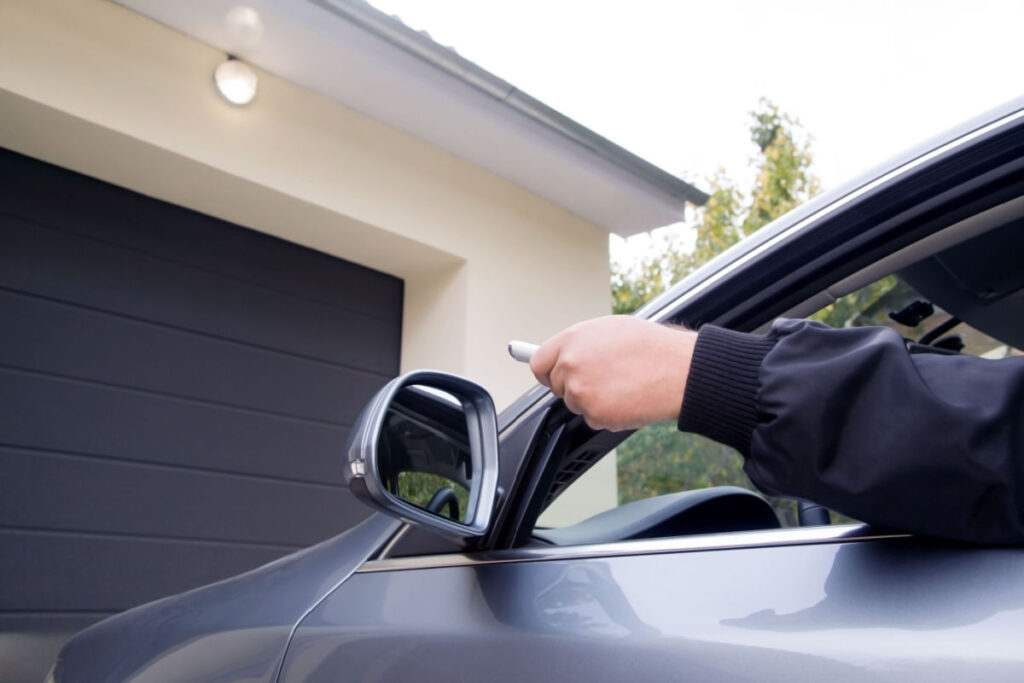
Garage doors are essential for maintaining the safety and security of your home, but they can also be a source of frustration when they start making loud and jarring noises. What once was a normal part of your routine has become an embarrassing signal to your neighbors and family members of your comings and goings.
A loud garage door is not only bothersome but can also indicate serious problems that may lead to costly repairs or even injury. Understanding why your garage door is so loud can help you take the necessary steps to resolve the issue and restore the safety and functionality of your garage door.
Here are some of the most common reasons why garage doors become loud and how to prevent it.
Lack of Lubrication
You may have a noisy garage door on your hands because its moving parts have not been properly lubricated. Over time, dirt and debris can accumulate on the hinges, rollers, and tracks, causing excessive friction and noise when the door is opened or closed.
To fix this problem, it’s important to ensure all moving parts are well-lubricated with a high-quality garage door lubricant. Applying a lubricant to the moving parts once every six months can keep your door working smoothly and prevent rattling, grinding, squeaking, and banging noises.
Worn-Out Rollers
The rollers are the parts of the garage door that allow it to move up and down the tracks. When the rollers become worn out or damaged, they can cause the door to make loud grinding or squeaking sounds as it moves along the tracks. Replacing worn-out rollers with new ones can help reduce noise and prevent further damage to the door. If you want to reduce the noise your garage door produces, you can install nylon rollers, which glide smoothly across the metal track.
Loose Hardware
Loose nuts, bolts, and screws can cause a garage door to rattle and vibrate excessively. This problem can arise due to normal wear and tear or improper installation of the hardware. Tightening all the loose parts with a wrench or screwdriver can help fix the noisy garage door and prevent further damage.
Damaged Springs
Garage door springs help bear the weight of the door and can become worn or damaged over time. When the springs are damaged, they can cause the door to make loud popping or banging noises. If you suspect your springs have broken, it’s essential to get them inspected and replaced by a professional garage door technician right away.
Misaligned Tracks
Misaligned tracks can also increase the amount of noise your garage door produces. When the tracks are not properly aligned, the door can rub against them, causing a loud grinding sound. Ensuring the tracks are straight and properly aligned can help reduce noise and prevent further damage to the door.
Old Door Opener
Older garage door openers can also contribute to noise problems. If your garage door opener is more than ten years old, it may be time to replace it with a newer, quieter model. Modern garage door openers are equipped with advanced features, such as belt drives and motors, that operate quietly and efficiently. If you suspect your opener is the problem, let our team know, and we can help you with a new garage door opener installation.
Trust On Trac to Fix Your Noisy Garage Door
A noisy garage door may be the result of several factors, including poorly lubricated parts, worn-out rollers, and loose hardware. Regular maintenance and inspection of your garage door can help you identify and address these issues before they lead to costly repairs or pose a safety risk.
If you’re unsure about any of the issues discussed above or need assistance fixing them, contact On Trac Garage Door Company. Our garage door repair technicians in Southern California can quickly get to the bottom of the noise and provide a solution that will get your garage door running smoothly and quietly once again.
